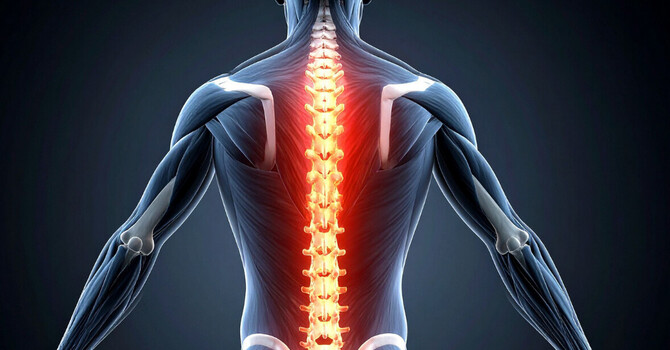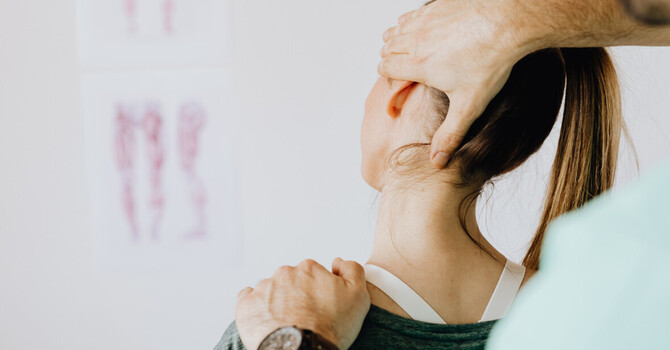
Load Capacity Pain and the Buckets of Pain in Charlotte, NC
Most people think pain just shows up. A stiff neck, a sore knee, a back that locks up. It feels sudden, but pain usually follows a pattern. At Resolve Soft Tissue and Spine in Charlotte, North Carolina, we explain it with two ideas: load and capacity. Your body has a certain capacity to handle stress. This includes the movements you repeat every day, the time you spend sitting, the workouts you do, and even the stress you carry mentally and emotionally. As long as the load stays under your capacity, you stay out of pain. When load pushes higher than what your body can handle, pain shows up.
The bucket analogy. Think of your body as a bucket. Every type of stress fills it with water. When it spills over, pain begins. Some things in the bucket cannot be removed. Arthritis, disc degeneration, labral tears, and spinal stenosis are like concrete at the bottom. They take up space and they are permanent. What we can do is lower the water level. This is where Resolve STS makes the biggest difference. Adhesion is one of the most overlooked and most treatable causes of chronic pain. Adhesion acts like glue around muscles and nerves. By removing it, we restore motion, strength, and blood flow. You still have the concrete at the bottom, but you get more space before the bucket spills over. Patients from SouthPark, Ballantyne, Myers Park, and Dilworth come to our Charlotte office because they have tried everything else and are still in pain.
The four buckets of pain. When we look at why people hurt, there are usually four categories that matter. Structural pain comes from arthritis, disc injuries, labral tears, or stenosis. These changes cannot be undone, but they often hurt less once other layers of stress are removed. Functional pain is where we focus. Adhesion, weakness, poor movement, and limited flexibility all fall here. These problems are common, rarely diagnosed, and highly treatable. If you want a deeper look at how we approach these issues, you can visit our services page. Metabolic pain comes from systemic issues like poor nutrition, autoimmune disorders, or inflammation. These make healing slower. Someone with an autoimmune condition, for example, may still benefit from treatment, but progress takes longer because their bucket starts out heavier. Psychological and emotional pain comes from stress, anxiety, and poor sleep. When the nervous system is on high alert, pain is amplified. The brain and body are always connected.
Compensation and unlayering. The body adapts when one area is overloaded. Another part steps in to carry the burden. This is called compensation. It helps short term, but over time it builds hidden problems. When patients begin care at Resolve, we usually start with the pain that is loudest. As that calms down, other areas surface. This is unlayering. It is not a setback. It means we are peeling back years of compensation patterns and resolving them one by one.
Why healing is complex. Two people can have the same MRI result and very different pain experiences. That is because pain rarely comes from just one source. It is a mix of permanent structural change, functional adhesion, systemic health, and emotional stress. At Resolve, we stay focused on adhesion. We cannot erase arthritis, but we can restore lost motion and strength by removing adhesion. That lowers the water in your bucket and gives you more capacity to live with less pain.
The 5 Visit Rule. We set clear expectations. If you do not feel measurable, lasting change within five visits, we stop. We will not keep you in care without progress. If adhesion is the main driver of your pain, you should notice a difference quickly. More about this can be found in our FAQ section, where we outline what patients typically experience in the first visits.
Our mission in Charlotte and the southeast. Our mission in Charlotte and across the southeast region is to help people step off the medical merry go round and finally move toward healing. Most of our patients have lived with pain for at least six months. Many have already seen three or more providers without lasting relief. Patients travel not only from across Charlotte but also from South Carolina, Southern Virginia, and Northern Georgia to find answers here. Too many have been told that their only option is to manage pain, rely on injections, or even face surgery. Our work is about giving people another path.
Who we are right for. We are a good fit if your pain has lasted more than six months, if you have already seen several providers, and if you are ready to invest in a different approach. We are probably not a fit if your pain is brand new or if you are only looking for a quick adjustment or massage.
Next step. If this sounds like you, the best step is to book a consultation with Zac. He will review your case, test for adhesion, and tell you clearly whether we can help. You can schedule directly through our booking page.

Zac Breedlove
Contact Me



